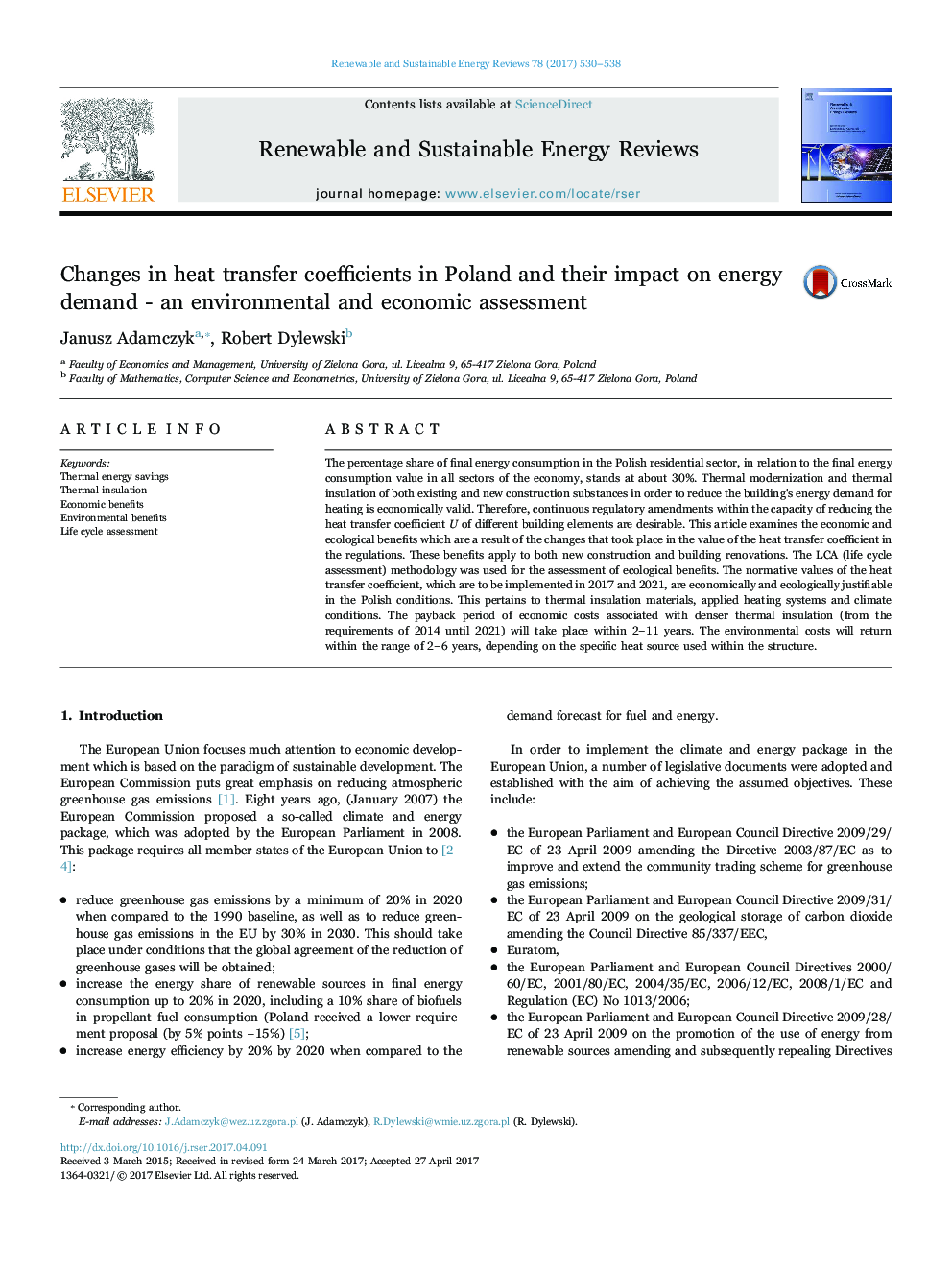| Article ID | Journal | Published Year | Pages | File Type |
|---|---|---|---|---|
| 5482484 | Renewable and Sustainable Energy Reviews | 2017 | 9 Pages |
Abstract
The percentage share of final energy consumption in the Polish residential sector, in relation to the final energy consumption value in all sectors of the economy, stands at about 30%. Thermal modernization and thermal insulation of both existing and new construction substances in order to reduce the building's energy demand for heating is economically valid. Therefore, continuous regulatory amendments within the capacity of reducing the heat transfer coefficient U of different building elements are desirable. This article examines the economic and ecological benefits which are a result of the changes that took place in the value of the heat transfer coefficient in the regulations. These benefits apply to both new construction and building renovations. The LCA (life cycle assessment) methodology was used for the assessment of ecological benefits. The normative values of the heat transfer coefficient, which are to be implemented in 2017 and 2021, are economically and ecologically justifiable in the Polish conditions. This pertains to thermal insulation materials, applied heating systems and climate conditions. The payback period of economic costs associated with denser thermal insulation (from the requirements of 2014 until 2021) will take place within 2â11 years. The environmental costs will return within the range of 2â6 years, depending on the specific heat source used within the structure.
Related Topics
Physical Sciences and Engineering
Energy
Renewable Energy, Sustainability and the Environment
Authors
Janusz Adamczyk, Robert Dylewski,
